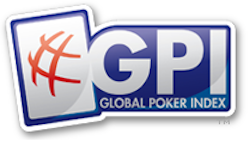Global Poker Index Removes Jean-Paul Pasqualini and Cedric Rossi from Rankings Following 2009 Cheating Allegations
 Following recently unearthed allegations of cheating and collusion by Jean-Paul Pasqualini and Cedric Rossi at the 2009 Partouche Poker Tour Main Event, the Global Poker Index has announced it will be removing the suspected players from its rankings.
Following recently unearthed allegations of cheating and collusion by Jean-Paul Pasqualini and Cedric Rossi at the 2009 Partouche Poker Tour Main Event, the Global Poker Index has announced it will be removing the suspected players from its rankings.
In an article posted on the GPI website early this morning, Zokay Entertainment CEO Alexander Dreyfus described the move as a “suspension” of the two French players from the various rankings GPI provides, including the Worldwide, France, and Europe lists.
Neither Pasqualini and Rossi has appeared in the GPI’s “Top 300” list since Dreyfus and Zokay Entertainment relaunched the ranking system last fall. The complicated rubric employed by GPI only takes into account tournament results from the previous 36 months, meaning Pasqualini’s victory and Rossi’s runner-up finish in the 2009 PPT Main Event were no longer being included in the calculation of either players’ rankings.
Both players have continued to play on the professional circuit since 2009, with Pasqualini having amassed around $850,000 worth of winnings since that €1 million score at Partouche in 2009. Rossi’s results have been more modest since finishing second at the 2009 PPT ME for a €606,700 prize, totaling around $150,000 worth of winnings, most coming in events played in Marrakech, Morocco.
Haley Hintze reported here recently the initial revelation of the pair’s cheating in an eyebrow-raising video in “Partouche Poker Tour Cheating: Merci, No More.” Hintze followed up with a report that suggestions have been made a third player at that 2009 final table, sixth-place finisher Hassan Fares of Morocco, might also possibly have been involved in the collusion, “Partouche Poker Cheating a Multi-National Affair.”
“By taking this action, we are not claiming that we know they cheated,” explained Dreyfus in this morning’s article conveying the decision to “suspend” Pasqualini and Rossi. “What we are convinced of is that there wasn’t fairness at the table. Unfair behavior will not be promoted by the Global Poker Index” (bold emphases in the original).
Dreyfus goes on to acknowledge his awareness of a possible “slippery slope” regarding the removal of players from consideration from GPI’s rankings based on the site’s own judgment of players having cheated to obtain results. Or, as Dreyfus puts it, players having affected the fairness of a given tournament in such a way that “the performance is distorted or compromised.”
Incidentally, responding to a comment by BLUFF Magazine Poker Information Manager Kevin Mathers, GPI Reporter and Promotion Manager Marco Valerio tweeted earlier today that Ali Tekintamgac had previously been removed from the GPI rankings as well. Tekintamagac, of course, is the German player who was disqualified from the 2010 Partouche Poker Tour Main Event just prior to the start of the final table for “fraudulent actions” (i.e., alleged cheating conducted with the aid of a blogger).
Dreyfus additionally draws a distinction between the GPI’s decision to remove Pasqualini and Rossi from its rankings and similar “suspensions” once delivered by the ill-fated Epic Poker League’s Standards and Conduct Committee, a.k.a. the “Ethics Committee.” Recall, for example, how the EPL “suspended” Howard Lederer and Chris “Jesus” Ferguson from participating in league events following the DOJ’s September 2011 amendment of the “Black Friday” civil complaint to include both players.
Dreyfus likely felt compelled to draw such a distinction thanks to the fact that the GPI originated with the Epic Poker League, with the ranking system having been previously employed by the EPL to determine player eligibility for its tournaments.
In June 2012, Pinnacle Entertainment obtained the GPI and other assets belonging to Federated Sports & Gaming (parent company of the EPL) as a consequence of FS+G’s bankruptcy filing, then in August Pinnacle sold the GPI to Zokay Entertainment. The GPI system has since grown in popularity, with the ever-changing leaderboard starting to appear in USA Today on a weekly basis in September 2012.
I had a chance to speak briefly with Dreyfus last week at the Casino Barrière de Deauville where I happened to have been covering the EPT Deauville Main Event. We talked informally about the GPI’s ambitious plans for the coming year, among which are included having a significant presence at this summer’s World Series of Poker in Las Vegas as well as broader goals to help provide a kind of central liaison through which all of the various tours (WSOP, WPT, and others) can connect.
Dreyfus concludes his article by talking about using the GPI as a means to discourage cheating, and even contemplates creating a separate “Player Trust” rating separate from the GPI ranking that casinos around the world could consult when desired.
The Global Poker Index has certainly emerged as a frequent topic of interest in the poker community over the last few months, with the rankings and new Facebook-based Fantasy Poker Manager game earning a lot of attention.
The ambitions articulated in Dreyfus’s article of today echo those suggested by our conversation last week. He and the GPI clearly hope to become a constructive influence both within the poker community and in the effort to promote the game to others. Thus do I see the decision here to make a conspicuous statement regarding cheating and the need to keep poker clean and fair as fitting with an overall ethos to better the game and improve conditions for those who play it.
Whether or not such an ethos can co-exist with a sustainable business model remains to be seen, of course. Indeed, Dreyfus notes early on in his article how he’s “investing a lot of money into this goal” of promoting poker, helping its growth, and encouraging mainstream acceptance of the game.
In any case, the GPI has most certainly promoted itself into a new prominence over the last few months, and seemingly appears poised to be involved with creating more poker-related headlines in the coming year.



















COMMENTS